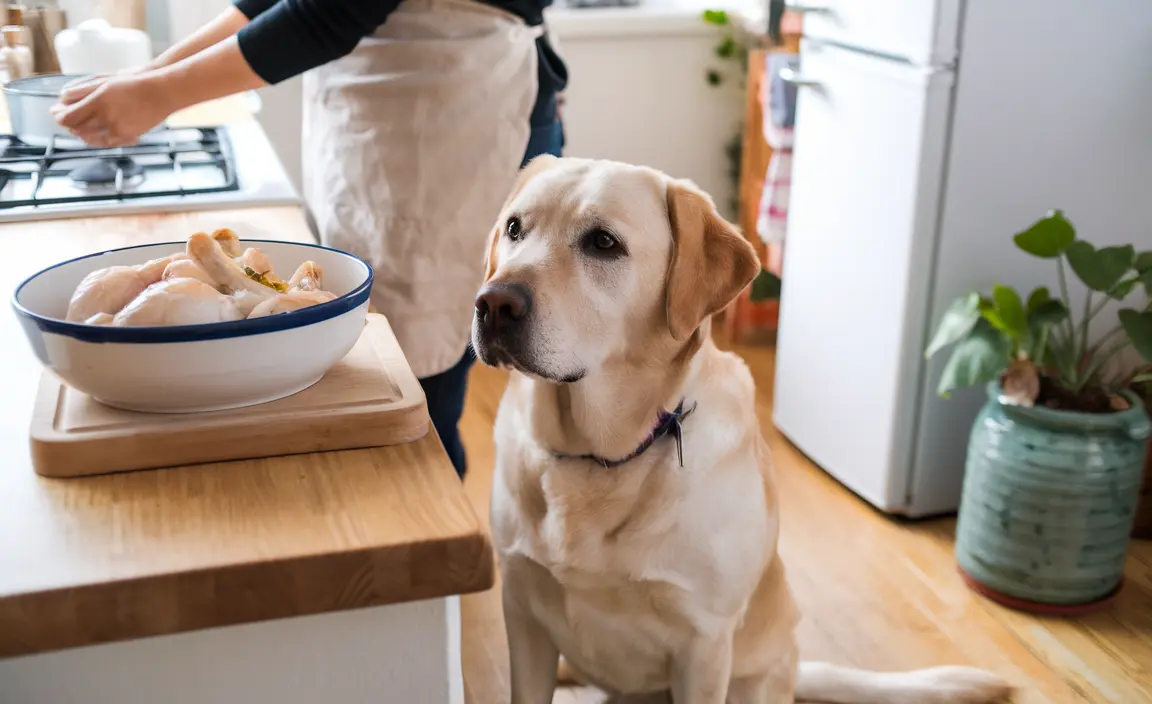Dog owners often wonder about the best dietary choices for their furry companions. Chicken, a popular protein source, can be an excellent addition to your dog's diet when prepared and served correctly. Understanding the nutritional benefits, potential risks, and proper feeding guidelines is crucial for maintaining your dog's health and well-being.
In this comprehensive guide, we'll explore everything you need to know about feeding chicken to dogs, from its nutritional value to safe preparation methods and potential considerations.
Nutritional Benefits of Chicken for Dogs
Chicken is more than just a tasty treat for dogs – it's a powerhouse of essential nutrients that can significantly contribute to your pet's overall health. As a lean protein source, chicken provides numerous advantages for canine nutrition:
High-Quality Protein Power
- Supports muscle development and maintenance
- Provides essential amino acids
- Helps maintain healthy energy levels
- Promotes optimal body function and repair
Essential Vitamins and Minerals
Chicken is packed with important nutrients that support your dog's health, including:
- Vitamin B3 (Niacin): Supports metabolism and energy production
- Vitamin B6: Aids in brain function and hormone regulation
- Phosphorus: Promotes strong bones and teeth
- Selenium: Supports immune system function
Safe Chicken Preparation for Dogs
Proper preparation is key to ensuring chicken is safe and beneficial for your canine companion. Follow these essential guidelines to serve chicken safely:
Cooking Methods
- Boil chicken without added seasonings
- Grill or bake plain chicken
- Remove skin and visible fat
- Cut into small, manageable pieces
- Avoid using oil, butter, or seasonings
What to Avoid
Certain chicken preparations can be harmful to dogs:
- Never serve raw chicken due to bacterial risks
- Avoid bones, which can splinter and cause injury
- Skip seasoned or processed chicken
- Remove all skin and excess fat
Potential Risks and Allergies
While chicken is generally safe, some dogs may experience sensitivities or allergies. Watch for these potential signs:
Chicken Allergy Symptoms
- Persistent itching
- Ear infections
- Digestive issues like vomiting or diarrhea
- Skin irritations or hot spots
Moderation is Key
Even though chicken is nutritious, it shouldn't be the sole component of your dog's diet. Always consult with your veterinarian to create a balanced nutritional plan.
Daily Chicken Consumption Considerations
Feeding chicken daily can be beneficial, but it requires careful planning and monitoring:
Balanced Diet Approach
- Integrate chicken as part of a varied diet
- Include other protein sources
- Mix with appropriate vegetables and grains
- Monitor your dog's weight and overall health
Veterinary Guidance
Each dog has unique nutritional needs. Regular check-ups and professional advice can help you determine the ideal chicken intake for your specific pet.
Frequently Asked Questions
Is chicken good for dogs and what are its nutritional benefits?
Chicken is an excellent source of lean protein, providing essential amino acids, vitamins, and minerals that support muscle development, metabolism, and overall health.
How should I prepare chicken to ensure it is safe for my dog to eat?
Cook chicken thoroughly without seasonings, remove skin and bones, and cut into small pieces. Boiling or baking are recommended preparation methods.
Can dogs be allergic to chicken, and what are the symptoms?
Some dogs can develop chicken allergies. Symptoms include itching, ear infections, digestive issues, and skin irritations. Consult your veterinarian if you notice these signs.
Is it okay to feed my dog chicken daily, and how can I balance their diet?
While chicken can be a daily protein source, it should be part of a balanced diet. Include various protein sources, vegetables, and grains, and consult your vet for personalized advice.
What are the risks of feeding raw chicken to dogs, and should I avoid it?
Raw chicken poses significant bacterial risks, including salmonella. It's strongly recommended to always cook chicken thoroughly before serving it to your dog.






